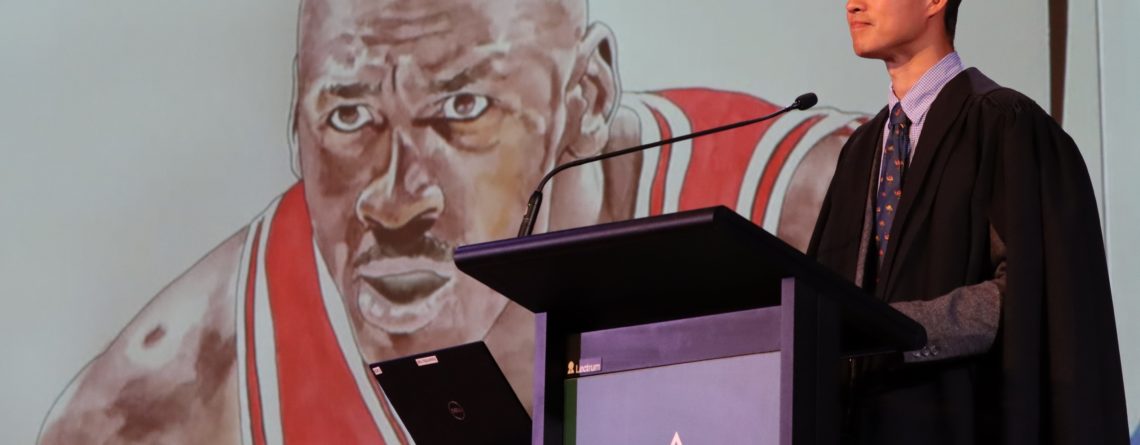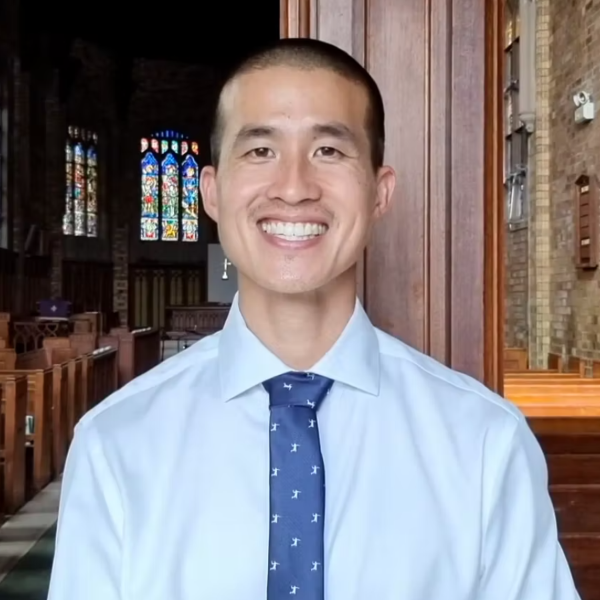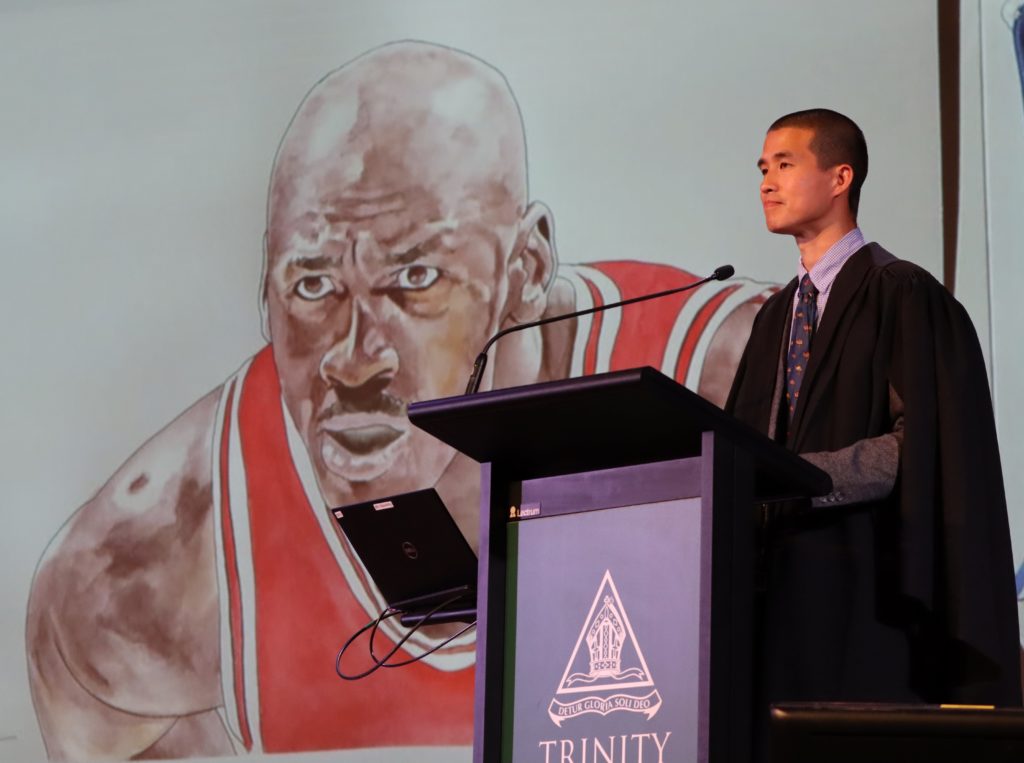Exploring Chaplaincy at Trinity
Trinity’s support system and pastoral care network for students is comprehensive, with House Masters, tutors, counsellors, and more all working together to ensure every student is getting the best support to ensure he can thrive academically, emotionally, physically, and spiritually.
Across every campus, Trinity’s School Chaplaincy team is an integral part of this wider support system.
Mr Nathan Lee is an Assistant Chaplain at the Senior School and recognises that the role of Chaplains can differ significantly from school to school.
“At Trinity, a good Chaplain embodies the gospel of Jesus within the School community,” he says. “From the school executive to the kindy classroom, Chaplains provide a presence that reminds the School of its Christian foundations, encouraging staff and students to keep the Christian mission of the School front and centre.”
Trinity Chaplains are part of a Christian Ministry to the whole school community. This means:
- Every student from K-12 attends Chapel once per week
- A variety of annual and specialist chapel services occur, including House services, Lessons and Carols for Advent, and Remembrance Day with the Cadet Unit
- Each calendar year begins with a chapel service for all staff
- Each student attends Christian Studies once per week and there is a chaplaincy to the whole school
- The opportunity to join voluntary Christian groups to learn more about Jesus, pray, read the Bible and go into the community to serve others.
Chaplains are so integral to Trinity life, that many of them are involved in more School activities and initiatives than you might first think and each of the Chaplains has different day-to-day responsibilities according to their teaching load, areas of interest, and role within the wider Chaplaincy team.
“For me, an average day includes a mixture of teaching English and Christian Studies classes, speaking in Chapel, leading prayers in Assembly, running a lunchtime Bible Study group, coaching basketball, and attending to the organisational and administrative tasks needed for all those things to happen,” Nathan says. “If that sounds like a lot, it is! But I’ve found that wearing multiple hats opens up all sorts of opportunities to love the students and the staff at School, and to share Jesus with them.”
When you speak to any of the Chaplains at Trinity, they’ll each give you a different story as to how they found their way into Chaplaincy – there is no hard and fast career path to follow.
“I’ve never been one to map out a career path – I don’t have that kind of foresight!” Nathan jokes. “As a result, I’ve had a number of different jobs over the years, all of which have been formative in their own way. Working as a Youth Minister in my late 20s, and then as an English teacher in my early 30s are the two roles that have been most directly relevant to my current work as a Chaplain.”
For those looking to pursue Chaplaincy, Nathan recommends having a theological qualification and an educational one.
“Some schools emphasise one over the other; it depends on the role and the context. It would also help to have some training in public speaking.”
At Trinity, Chaplains have a unique opportunity to interact with a large cross-section of the School community, larger than the average classroom teacher. Nathan cites this as one of his favourite parts of the job.
“I love that my particular configuration of responsibilities allow me to minister to the whole life and being of the students – mind, body, and spirit,” he says. “And of course, I love the challenge of preparing and delivering Chapel talks that help staff and students trace God’s grace in every space.”
Want to know more about working at Trinity? Check out all the employment opportunities available.



















